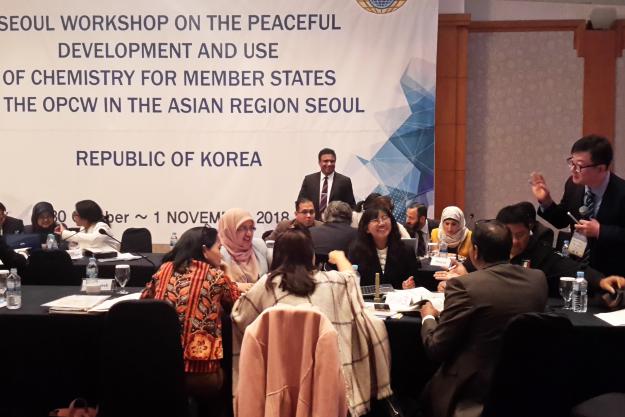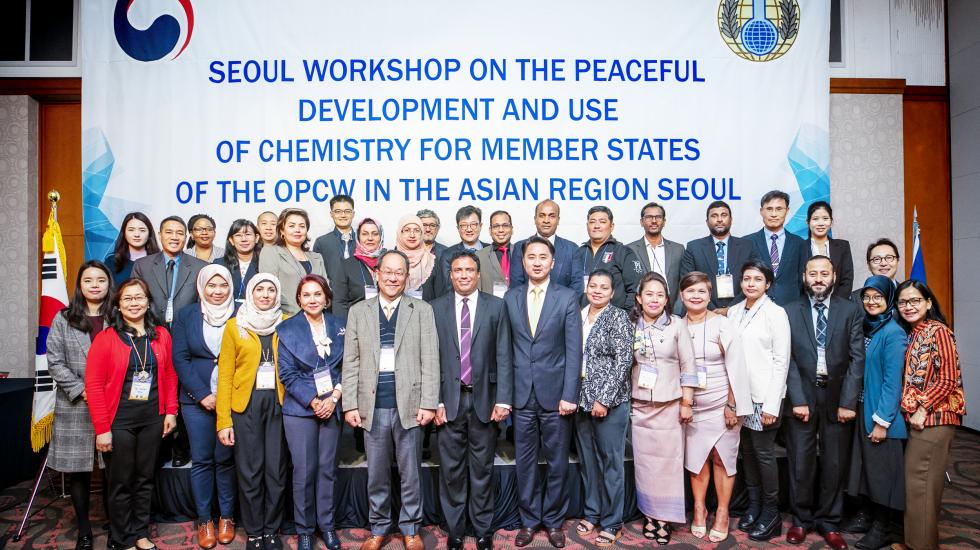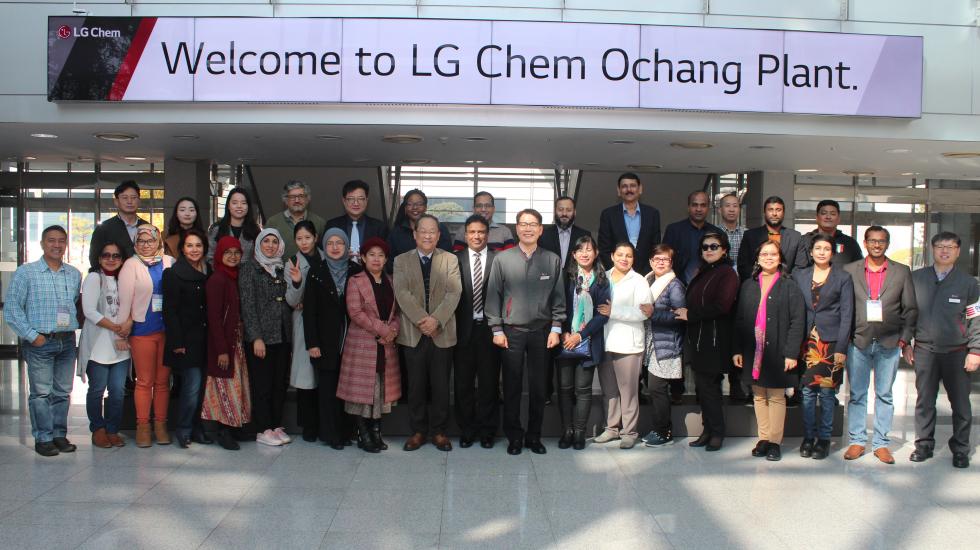
Table-top exercise to analyse chemical safety risk based on severity and probability
THE HAGUE, Netherlands — 7 November 2018 — Advancement of chemical safety and security risk management constituted the core of the Seventh Workshop on Peaceful Development and Use of Chemistry, conducted by the Organisation for the Prohibition of Chemical Weapons (OPCW) in collaboration with National Authority of Korea, in Seoul, Republic of Korea, from 30 October – 1 November.
Director of Disarmament and Non-Proliferation Division at the Ministry of Foreign Affairs, Mr June-byoung Park opened the workshop alongside Managing Director of Korea Specialty Chemical Industry Association, Mr Jai youl Yang, and OPCW representatives.
Mr June-byoung Park stated in his opening remarks that the workshop is relevant to national security as “it is imperative that toxic industrial chemicals and precursor materials should be managed properly, given that the accessibility to the Weapons of Mass Destruction and terrorism are closely linked. To this end, we must modernise the management of such materials and apply the industry’s best practices in the whole cycle – production planning, supply chain and distribution”.
OPCW’s Senior Programme Officer, Mr Rohan Perera, noted that, “Korea’s strong support of the implementation of the Chemical Weapons Convention and their voluntary contributions are invaluable to various areas of the Organisation, including multiple capacity-building workshops and activities such as this one.”
The workshop covered a broad range of issues relevant to safety and security management in chemical industry, including: risk assessment for accident prevention and preparedness; human factor analysis; best practises to prevent misuse of chemicals; and security threat mitigation.
The participants also visited the LG Chem Ochang Plant in Seoul, and learned about the practical aspect of chemical management.
The 27 attendees representing 15 OPCW Member States comprised individuals ranging from government officials responsible for chemical industry, professionals from small- to medium-sized chemical enterprises, to academics and chemists.
The training was funded by the voluntary contribution from the Republic of Korea.

Participants at the peaceful development and use of chemistry, Seoul, Republic of Korea

Visit to the LG chemicals Ochang Facility to learn about chemical management
Background
As the implementing body for the Chemical Weapons Convention, the OPCW, with its 193 Member States, oversees the global endeavour to permanently eliminate chemical weapons. Since the Convention’s entry into force in 1997, it is the most successful disarmament treaty eliminating an entire class of weapons of mass destruction.
Over 96% of all chemical weapon stockpiles declared by possessor States have been destroyed under OPCW verification. For its extensive efforts in eliminating chemical weapons, the OPCW received the 2013 Nobel Peace Prize.
